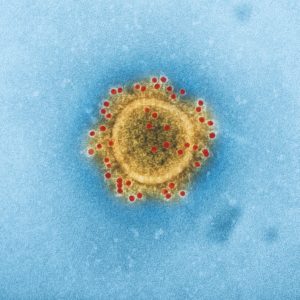
I opened Twitter last week to a guy with a ‘biology degree’ hosting an ‘ask me anything’ session on COVID-19. I stumbled on another thread where an economist using cockamamie statistical magic had conjured up stats on projected mortality. The thread was followed by gasping responses and replies.
Based on misinformation, hype and irresponsible speculation like this, people are losing their shittake in the public space.
It’s not that surprising, really. When you take a public health crisis and mix it with people desperate for traffic and attention everyone becomes as an expert. It’s democratized media meets ego. Throw in the the wild proliferation of scams that even Facebook can’t control and you’ve got a real show.
Infodemic = public health crisis + people looking for eyeballs
This is why the infodemic is potentially a bigger threat than the coronavirus pandemic. The infodemic is the viral spread of misinformation. Infodemic, a term recently adopted by the WHO, was coined in 2003 by David Rothkopf in a Washington Post editorial involving the SARS epidemic. While the term has taken on a viral life of its own, its never been more relevant than now.
Because everyone has a platform and an audience. But a platform doesn’t make you an expert. And an audience does not give you authority (let those three sentences sink in…). And despite 100 million megaphones blaring at once, few in the self-anointed role of influencer are in any position to advise beyond the buzzworthy basics of ‘stop touching your face.’ But that’s okay.
And while it may not be popular, we also need to understand that the coronavirus expertise of physicians is limited.
Of course, compared to that guy workin’ his ‘biology degree’ I like to think I bring greater authority to what I say and share as a doctor. But I need to be transparent about my expertise with coronavirus: I just don’t know much about it. But like every other physician, I’m learning fast. In fact, most health professionals like myself understand only what the experts in virology, epidemiology and public health help us to understand. Of course we have background to put it all together. Our expertise in the characteristics of this critter is only as deep as we read and listen. And that’s okay for now.
Shared responsibility for the COVID-19 infodemic
Situations like the COVID-19 infodemic create the opportunity to think about how we should use and rely on tools like Twitter.
As public physicians we have a responsibility to insure that the Covid-19 information we share and create is correct and measured. We have to be careful about what we say and how we say it. This has always been our responsibility. But somehow it just seems to be so much more important now..
As important, the public bears the responsibility of being careful about who they listen to and what they believe.
If you like this post on the COVID-19 infodemic you might like the 33 charts Authority Archives. It’s a collection of all the stuff written here about expertise and authority online. It’s one of my fav 33c tags … Check it out.